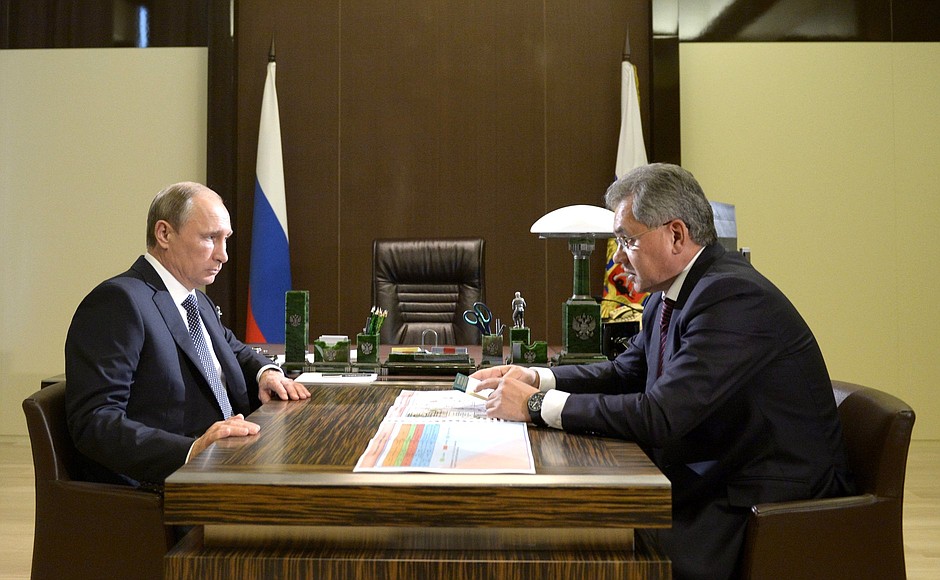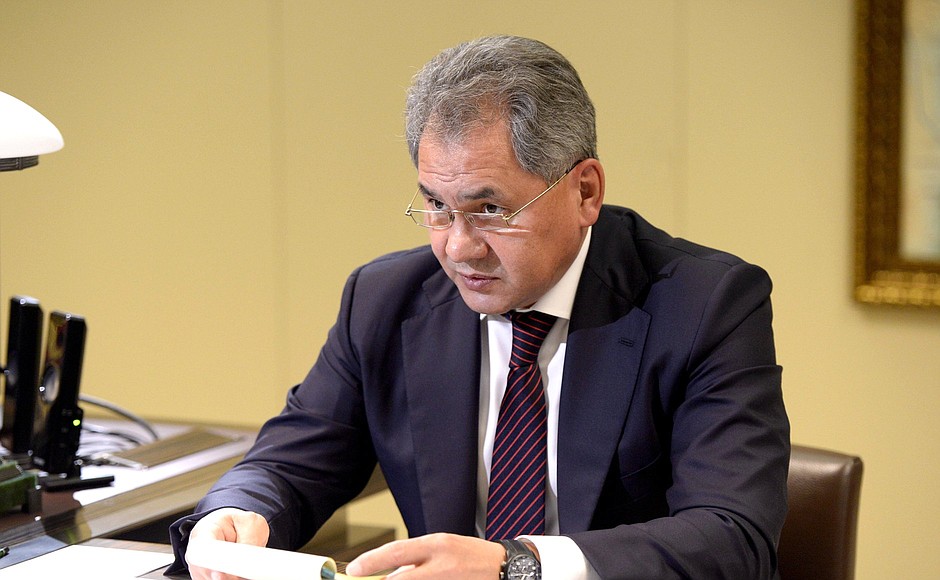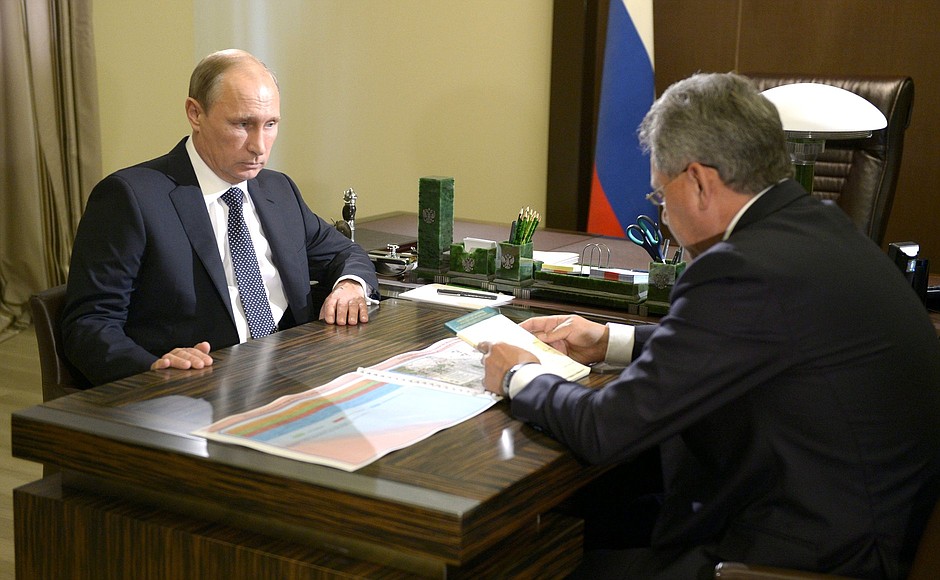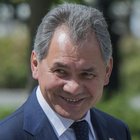The Russian Aerospace Forces are currently carrying out missions to support Syrian government troops in combatting terrorists and are launching airstrikes against the Islamic State’s positions in Syria.
* * *
Defence Minister Sergei Shoigu: Mr President, acting on your decision, since the 30th, we have been carrying out missions to strike ISIS, Jabhat al-Nusra, and other terrorist groups present on Syrian territory. Since September 30, we have conducted strikes against 112 targets. We are increasing our strikes’ intensiveness. Our various intelligence and reconnaissance forces have been working intensively over these last two days and have identified a large number of ISIS targets: command posts, ammunition depots, military hardware, and training camps for their fighters. Vessels from our Caspian Fleet joined our aviation in attacking these targets this morning.
Four warships launched 26 Kalibr cruise missiles against 11 targets. Our target monitoring data shows that all targets were destroyed and civilian facilities were not damaged in the strikes. These strikes’ results demonstrate the high effectiveness of our missiles launched from a big distance of nearly 1,500 kilometres.
This morning, 23 attack aircraft also continued their strikes against insurgent positions. Since September 30, we have destroyed 19 command posts, 12 ammunition depots, 71 pieces of military hardware, and six explosives production workshops producing explosives for car bombs and so on. We are continuing our operations according to plan.
President of Russia Vladimir Putin: Mr Shoigu, we know how complicated antiterrorist operations of this kind are. It is still too early to assess the results, but what has been accomplished so far is certainly very positive. The Defence Ministry’s work overall, and the work of the experts at General Staff and our officers and service personnel in the field deserve a high assessment. Special thanks should go to the pilots at work in Syria, of course, and as this experience with using high-precision weapons shows, to the Caspian Fleet seamen.
The fact that these strikes were carried out using high-precision weapons launched from the Caspian Sea’s waters, around 1,500 kilometres away, and all of the planned targets were destroyed is evidence of our defence industry’s good preparation and the service personnel’s good professional skills.
At the same time, we realise that conflicts of this kind must end in a political settlement. I discussed this matter just this morning with the Russian Foreign Minister. During my recent visit to Paris, the President of France, Mr Hollande, voiced an interesting idea that he thought is worth a try, namely, to have President Assad’s government troops join forces with the Free Syrian Army. True, we do not know yet where this army is and who heads it, but if we take the view that these people are part of the healthy opposition, if it were possible to have them join in the fight against terrorist organisations such as ISIS, Jabhat al-Nusra and others, this would help pave the way to a future political settlement in Syria.
The Foreign Ministry will continue these efforts, given that we are in contact with practically all of the opposition forces, but I ask you too to support the Foreign Ministry’s efforts through your partnership channels. That is my first point.
Second, we must continue working with our foreign partners, because without their participation, without the participation of Saudi Arabia, Turkey, the United States, Iran, Iraq and other neighbouring countries, this work has little chance of being organised as it should.
In this respect, I have a question: What is the situation with work between our defence experts and their US and Turkish partners to coordinate things or at least keep each other informed?
Sergei Shoigu: We have organised contact with our Turkish partners. We now have direct communication between the Turkish army’s central command post and our National Defence Control Centre to organise our operations along the Turkish border so as to avoid incidents involving violation of airspace.
We held a videoconference with our American colleagues and began examining matters regarding ways to ensure our joint work and security in this territory. We have examined the document the Pentagon sent us, and today will discuss the fact that we are ready to approve this document and start work accordingly.
Next, we invited all of the military attaches yesterday and proposed to them, our colleagues, all who are involved in this work in one way or another, to provide us information on targets, if they have such information of course, so that we can work more effectively against ISIS’ camps and units.
We are waiting for our colleagues’ answers today and we hope they will inform us of the targets they may have. Of course, we should take further steps to organise this work and continue it in systemic fashion because no matter how we look at the situation, without each other’s support it will not be possible to complete this task. Past experience shows this to be the case. Our colleagues have been working on these tasks over the last year, but sadly, we have yet to see visible results.
Vladimir Putin: It is fair enough if they say they know the situation better because they have been conducting operations in this territory (on an unlawful basis, as I have said) for more than a year now, but if they are there and know the situation better, let them share with us information on the targets they have identified over this time, and we will work them through.
As for our next steps, as we agreed, it will be synchronised with the Syrian army’s operations on the ground. Our Aerospace Forces will provide effective support for the Syrian army’s offensive.
Sergei Shoigu: Mr President, this work has been planned. We briefed you on the first plans and stages and will keep you updated on the missions’ results.
Vladimir Putin: Good.
<…>



